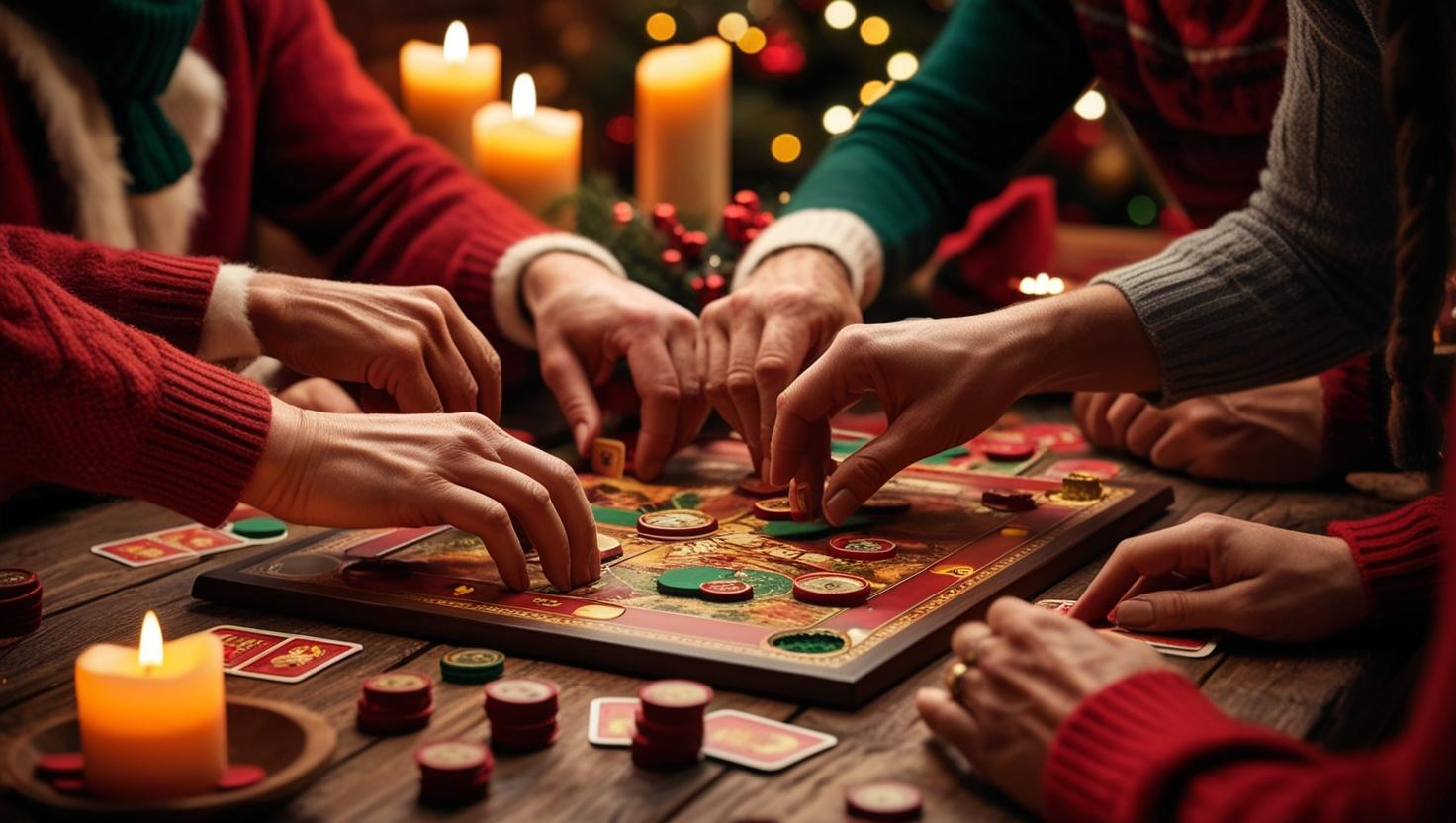It’s that time of year again. Yes, that’s right, it’s time to buy a new board game to play as a family over the holiday period. What could be more festive than being gathered around the table with family and friends after eating your fill of turkey, sprouts and cranberry sauce to get those competitive juices flowing by playing a board game.
As families gear up to spend time together, numerous articles about the best or most popular board games for Christmas have been published. Old staples like Charades, Scrabble and Chess have been mixed with newer favourites like Herd Mentality, 13 Beavers, Throw Throw Burrito, and Duel. Hopefully, playing board games won’t result in a Family Feud during this time of peace and goodwill.
Last year, for our Christmas article we wrote about the surprising amount of Intellectual Property (IP) inspired by the humble snowmen (see https://maclachlan.ie/in-the-meadow-we-can-build-a-snowman/ ), but board games are also a great example of how Intellectual Property, i.e. patents, designs, trade marks, and copyright, exist everywhere and a single product can contain numerous types of IP.
Copyright subsists automatically in any artistic work; believe it or not, a game board may be considered one. Copyright is long-lasting and is a great tool in a designer’s IP arsenal. For example, the board game Scrabble was created in 1938 by American Alfred Mosher Butts. Copyright applies for 70 years from the end of the year in which the author of the work died; Mr Butts died in 1993; therefore, the copyright in the Scrabble board will last until 2063. That’s 125 years of protection for free, although it will cost you to enforce it. Since you have to prove copying to enforce copyright, it is beneficial to reinforce such protection with other forms of IP.
Probably one of the most famous board games of all time is ‘Monopoly’. First created under the name The Landlord’s Game, a US patent was granted to the first version of the board game in 1904. While the game Tiddley Winks was the subject of a UK patent granted in 1889.
While “methods of playing a game” are now explicitly excluded from patent protection in the UK and via the European Patent Convention, articles required to play the game may still be the subject of a patent if they are novel, have an inventive step and are industrially applicable.
If the game board or apparatus has a unique look, it may also be possible to file design registrations to protect its appearance.
Of course, it is always worth protecting the signs that identify goods and services, and the names, logos, slogans, etc, of board games are no different. This can be done by registering them as trade marks.
While the patents granted for the Monopoly board game have lapsed, due to the distinctive character of the game’s board, which is readily recognizable and able to be used to identify the game, the layout of the board is now subject to trade mark protection in multiple jurisdictions. Additionally, the word ‘Monopoly’ and different logos used to identify the board game are registered as trade marks.
Mattel Inc., who own the rights to the board game Scabble, not only hold numerous registrations for trade marks for or containing the word Scrabble but has also obtained trade mark registrations for a series of letter tiles used when playing the game. The description of the marks on the register states that “The mark consists of a three-dimensional ivory coloured tile with the letter and numeral appearing thereon”.
Trademark registrations last for ten years and can be renewed for additional periods of ten years for as long as you want them, so again, they are a long-lasting right that can assist you in maintaining your place in the market even when the design rights or patent rights have lapsed.
Perhaps this year, while battling with the family over the latest board game, attempting to keep the peace, or simply observing others doing so, you will be inspired to create your own board game.
Should you be so inspired to create a game, or indeed to create any new consumer product, why not make an appointment to speak with one of our attorneys, any of whom would be happy to help you navigate this complex area of the law?
Maybe next year, your game will make those all-important board game charts, or even make an appearance on iconic The Late Late Toy Show.


